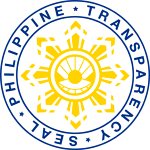Written by: Lotis M. Balala
Published date: October 9, 2025
VETMends, the flagship integrated veterinary outreach program of the Faculty of Veterinary Medicine (FVM), earned the distinction of 2nd Best Extension Project (Ongoing Category) during the Level II – Cluster 3 Research, Development, and Extension (RDE) Review held on September 23–24, 2025, at the Office of the Vice President for Research, Extension, and Innovation (OVPREI), Visayas State University, Baybay City, Leyte.
The recognition underscores the project’s remarkable impact on animal health, public health, and community development, as well as its efficient implementation despite limited resources. Led by a dedicated project team with Santiago T. Peña, Jr. as project leader, VETMends was lauded for its strategic use of funds to deliver a wide range of veterinary services, training programs, and advocacy activities that reached hundreds of beneficiaries across multiple communities.
One of the key drivers of VETMends’ success has been its strong emphasis on collaboration. During the year in review (2024), the project forged vital partnerships with local government units (LGUs) of Burauen, Hilongos, and San Isidro in Leyte, the Provincial Veterinary Services Office (PVSO) of Southern Leyte, and the Philippine One Health University Network (PhilOHUN). These alliances enabled the project to expand its reach, strengthen its service delivery, and implement more comprehensive veterinary and public health programs.

Extension activity at Brgy. Maslug, Baybay City, Leyte.

MOA signing with the Municipal Mayor of Burauen, Leyte.

MOA signing with the Municipal Mayor of Hilongos, Leyte.

VETMends in action at the San Isidro, Leyte.
VETMends made significant strides in delivering essential veterinary services to far-flung and underserved areas. The project conducted six veterinary medical missions in Baybay City, Maasin City, Hilongos, Burauen, and San Isidro, Leyte. These missions provided a range of services,![]() including 698 clients served through mass rabies vaccination drives, 153 clients served through spay and neuter programs, and 396 clients benefited from pet wellness check-ups and consultations.
including 698 clients served through mass rabies vaccination drives, 153 clients served through spay and neuter programs, and 396 clients benefited from pet wellness check-ups and consultations.
In addition to the medical mission services, VETMends implemented five rabies education and responsible pet ownership seminars, reaching 450 community members. It organized two dog shows to promote public appreciation of companion animals and encourage responsible pet ownership. These events were complemented by the distribution of over 1,000 Information, Education, and Communication (IEC) materials on animal health and welfare.
Recognizing the vital role of livestock in rural livelihoods, VETMends conducted a poultry production seminar that benefited 115 farmers, and provided livestock consultation and deworming services to 25 farmer beneficiaries. These initiatives contributed to improving animal productivity, farm profitability, and food security in partner communities.
The project also extended its training services to meat inspectors, delivering a Basic Meat Inspection Course in collaboration with the National Meat Inspection Service (NMIS) and the PVSO. This capacity-building effort aimed to improve meat quality and safety standards in local markets, ultimately safeguarding consumer health.

FVM Faculty members served as resource persons for Basic Meat Inspection in Southern Leyte.
In partnership with PhilOHUN, VETMends spearheaded an Antimicrobial Resistance (AMR) stewardship training and a One Health seminar attended by municipal agriculture officers, city health officers, LGU staff, poultry product suppliers, faculty, and students. These activities featured lectures and workshops led by experts from partner institutions both in the Philippines and abroad, emphasizing the interconnectedness of human, animal, and environmental health and the importance of coordinated action against AMR.

VETMends conducted AMR stewardship training and One Health Seminar in partnership with PhilOHUN.
In all these activities, VETMends provided hands-on training to 356 Doctor of Veterinary Medicine (DVM) students and clinicians, providing them with valuable field experience in community extension work and advocacy.


Senior clinicians in action: conducting various extension activities under the supervision of their assigned faculty member.
The success and recognition of VETMends stand as a testament to the power of collaboration, innovation, and service — a true reflection of the Faculty of Veterinary Medicine’s unwavering commitment to community engagement, education, public health, and sustainable development.
 [This article aligns with the Sustainable Development Goals: No. 3 – Good Health and Well-being, No. 4 – Quality Education, No. 12 – Responsible Consumption and Production, No. 15 – Life on Land, and No. 17 – Partnership for the Goals].
[This article aligns with the Sustainable Development Goals: No. 3 – Good Health and Well-being, No. 4 – Quality Education, No. 12 – Responsible Consumption and Production, No. 15 – Life on Land, and No. 17 – Partnership for the Goals].![]()
![]()





